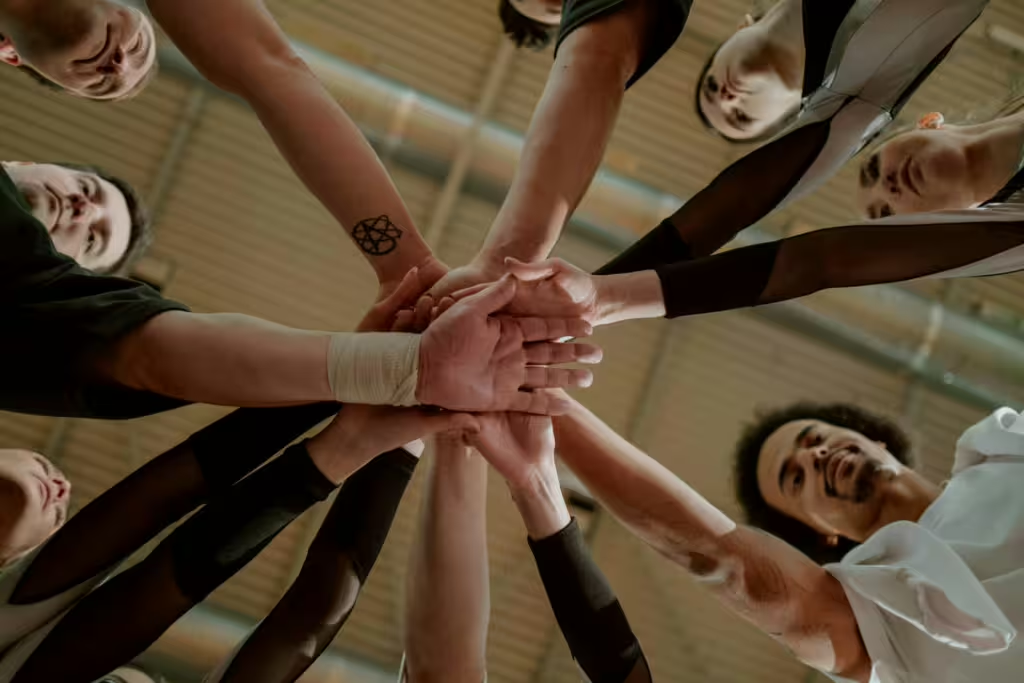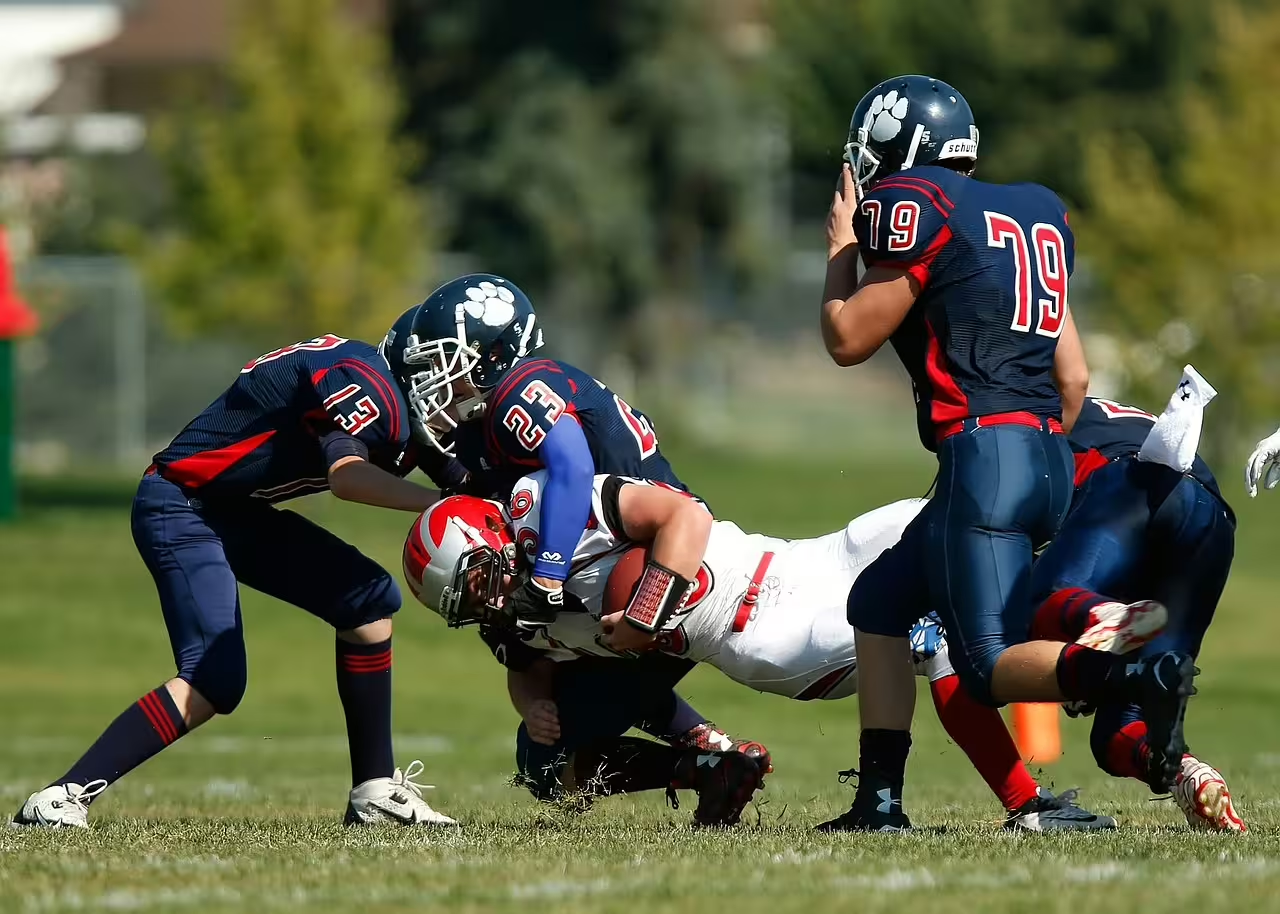Not every child who plays sports ends up loving then. Some kids do it to get exercise, make friends, or simply because their parents want them to. For those that do end up enjoying it, sports can become an integral part of their lives and their burgeoning identity. Whether it’s soccer on the weekends, little league baseball, competitive gymnastics, or one of a hundred school teams, sports provide young children with multitudinous opportunities.
In most cases, those opportunities involve them having the chance to engage in physical fitness, learn discipline, and learn valuable social skills that few other extracurricular activities teach. Yet, beyond the skills and drills and teamwork, there lies a truly vital lesson that every young athlete should learn: sportsmanship.
Good sportsmanship is a crucial piece of the youth sports puzzle. It can mean the difference between success and sulking, respectable winning and sore losing. Good sportsmanship is far more than just following the rules of the game, it’s about respect; treating others with respect. Children who learn good sportsmanship understand the importance of integrity, and showing both humility in victory and grace in defeat. The values of good sportsmanship are important because they not only make sports enjoyable for everyone involved, they also build character that extends far beyond the playing field.
In this article, we will discuss when and where good sportsmanship begins for young athletes. We will explore why it all begins at home and how parents play a pivotal role in teaching and modeling this valuable trait. Finally we will offer parents some practical tips to help them instill these essential qualities in their own children.
Understand the Basics of Sportsmanship
Before we can even try to teach sportsmanship to our kids, we need to truly understand what it entails. Many parents think they know what sportsmanship entails, but possessed as we are by emotion at times, it’s easy to forget certain important principles. Here are the core elements:
Respect: A good sport has respect for teammates, opponents, coaches, referees, and the game itself. Parents and coaches who want to impart this respect to the athletes in their care should encourage the kids to listen, acknowledge the perspectives of others, and show appreciation for everyone’s efforts; those who got to play and those who did not.
Fairness: Children need to learn to follow the rules by playing with integrity. For parents, imparting this concept might seem slightly difficult, but all you have to do is ensure that your child understands the importance of honesty. Kids are smarter than we give them credit for, they can easily understand the value of doing what’s right, even when it’s difficult.
Humility: Any reader who actually has a child understands that being humble is not in a child’s nature. In a way, we understand why this is. We want our children to think that they are special, unique, talented, but we need to be careful about grounding both our expectations for them and our the easily inflatable ego of a child. In sports, humility could be as simple as recognizing that success is a team effort and that they should not boast of their accomplishments too much. Parents can help by teaching children that arrogance can actually detract from their achievements. More importantly, being too full of oneself can lead to general meanness and might even make other kids feel bad.
Graciousness: Kids don’t like setbacks; heck, no one does, but accepting losses without resentment is a part of good sportsmanship. It certainly is one of the most recognizable. At the same time, young athletes also need to learn how to win without arrogance and accept that mistakes happen from time to time. Parents can achieve both by teaching their children to appreciate the journey, not just the outcome, and to view setbacks as more opportunities for them to grow.
Breaking these important facets of sportsmanship is important, but parents can always find real-world examples to help their children grasp some of the more difficult ones. For example, a parent might choose to discuss famous athletes who are well-known for their sportsmanship. If you do, focus on how their good behavior sets them apart both on and off the field. By understanding these foundational elements, your kid can begin to internalize what it truly means to be a true sport.
Model the Behavior You Want to See
Parents are a child’s main role models. We are the first thing they learn to copy, the first to help them form opinions, to teach them essential skills. Remember, children learn best by watching, and that doesn’t stop when they are old enough to play youth sports. If you, as a parent, demonstrate good sportsmanship in your daily interactions, then your kid is more likely to emulate those behaviors in their own.
Respect for Others: Parents should always be a good example by showing kindness and respect to people, whether it’s thanking a cashier or being polite to a driver who cuts you off. Whether we recognize it or not, our kids notice how you treat others. Thus, when they see you being considerate and respectful, they will likely act in the same way.
Grace Under Pressure: When things get tough on your end, try and handle your own setbacks with composure. Whether it’s losing a work opportunity or facing a challenging situation, parents should always demonstrate resilience and positivity in the face of adversity. If you do falter or even if you don’t, be open with your child. Share your thought process with them and explain why you’ve chosen to respond the way you did.
Celebrate Others’ Success: When a friend, family member, or colleague achieves something great, celebrate their success. Try and be as genuine about these congratulations as you can, it will teach your children that others’ victories will in no way diminish their own. The purpose of this is to emphasize that everyone’s efforts deserve acknowledgment and respect.
We touched on it earlier, but having conversations with your child about your own behavior and your reactions to the behavior of others is important to showing them how an adult handles any given situation. If you handle disagreements or misunderstandings diplomatically, demonstrate empathy, compromise, and forgiveness, then you can foster those reactions and reinforce good behavior in your child as well.

Talk About Winning and Losing
Parents should feel free to have open conversations with their children about the nature of competition. Here’s how:
Explain That Losing Is Part of the Game: Parents should emphasize the concept that failure is nothing but a stepping stone to improvement. Let your children know that every athlete faces defeat at some point, and that it is how they react to lost losses that ultimately defines their character.
Celebrate Effort Over Outcome: Always praise your child for their hard work, determination, and sportsmanship rather than just their success or how many wins they have under their belt.
Discuss the Value of Winning Well: Parents should ensure that their child understands why gloating or putting others down after a victory isn’t respectful, but reprehensible behavior. The trick is to treat winning as an opportunity to uplift others, not diminish them. If you need an example, mention a few of the more humble pro sports players. Talk about how these champions remain humble and inspire others through their good behavior.
Parents should encourage their kids to set personal goals that focus on improvement, rather than outright success. Good examples would be running faster, making more accurate passes, or learning new techniques. When success is measured against a child’s own progress rather than beating others, it helps the child to maintain a healthier perspective on competition.
Encourage Empathy
This one is actually easier than you might believe. Children are empathetic by their very nature. However, if if it seems like they are struggling with it, help them to see things from others’ perspectives:
Teammates: Teach young athletes to encourage and support teammates, especially those who may be struggling with their own issues. Try and explain that everyone has strengths and weaknesses, and that these differences are what makes a team dynamic.
Opponents: It’s hard to see the “other” as little more than a rival. Man sports fans have their own “favorite team” and “rival teams” and how we outwardly feel about them gets witnessed by our kids. That’s why parents need to explain that opponents are not always the enemies we envision them as. Opponents are partners in the game, because without them, there’d be no competition.
Officials: Parents need to always show respect for referees and coaches, so that their children do the same. Remind your kids that these are people, just like them and that they can make mistakes just as anyone can. At the same tile, teach your children that respect for authority is a vital part of sportsmanship.
Part of encouraging empathy involves teaching children to apologize when they’ve done something wrong. Whether that thing is accidentally injuring an opponent or losing their temper, it is important that kids understand and acknowledge the feelings of others. Such empathy on display will help your child develop deeper connections and a better sense of fair play.
Teach Emotional Regulation
How we handle emotions is a critical aspect of good sportsmanship. Parents can help their child develop emotional intelligence by:
Naming Emotions: Teach kids to identify heir feelings as well as label them. If they are feeling frustration, disappointment, or excitement, they should be able to evince and identify that. It might sound silly to do this, but this often helps kids to process their emotions more effectively.
Breathing Techniques: Parents can teach kids how to use deep breaths to stay calm in high-pressure situations. Practicing mindfulness or relaxation techniques can also help children to manage the stress of youth sports.

Recognize and Reward Good Sportsmanship
When your child demonstrates good sportsmanship, reward them for it, or at the very least acknowledge that they have done it. For example:
Praise Their Behavior: Say things like, “I loved how you shook hands with the other team after the game.”
Share Your Pride: Let your kids know that their good actions reflect well on their character. Highlight specific moments that might have impressed you.
Offer Rewards: While rewards aren’t strictly necessary, parents might consider non-material incentives, like choosing a family activity or earning extra playtime, as recognition for their child’s good behavior. Reinforce that good sportsmanship is a valuable attribute and worthy of celebration.
A good way to show how sportsmanship works is by pointing out other players’ good sportsmanship during games. Doing so can also help a child identify and understand these positive behaviors. By consistently recognizing and rewarding sportsmanship, parents can encourage their children to make good sportsmanship a priority.
Teach Sportsmanship Beyond Sports
Remember that sportsmanship isn’t limited to the playing field. Parents should always encourage children to practice these values in all areas of life:
School: Kids should always respect teachers, collaborate with classmates, and handle test results gracefully when in an academic environment. Teach them that their behavior in the classroom is just as important as their actions on the sports field.
Home: At home, remind children to always be kind to siblings and take responsibility for their mistakes. Parents who demonstrating fairness and respect at home set the tone for how their children ultimately treat others elsewhere in life.
Community: When your schedule and circumstances allow for it, try and encourage kids to volunteer, help neighbors, and generally show compassion to others. Emphasize that being a good sport means being a good citizen, and that good citizens contribute positively to the world around them.
Teaching a child to carry these principles into all aspects of their life will create a more well-rounded individual; one who values respect, fairness, and integrity in every interaction.
Cultured Athlete Says…
As you can see, teaching sportsmanship is about more than just ensuring your child shakes their opponents’ hands at the end of a game. Good sportsmanship means more than being a gracious winner or a respectful loser, it’s about having the values and skills they need to navigate life with integrity, empathy, and resilience.
Discover more from CulturedAthlete
Subscribe to get the latest posts sent to your email.






